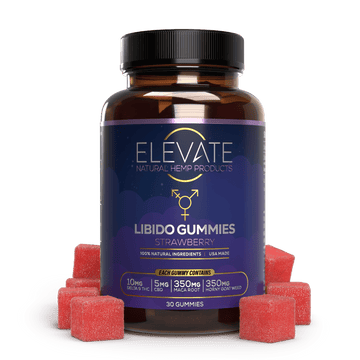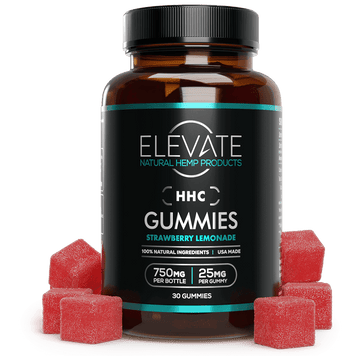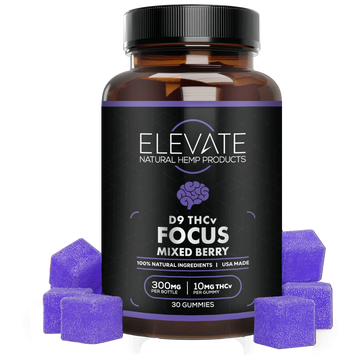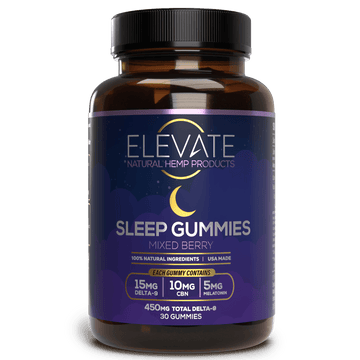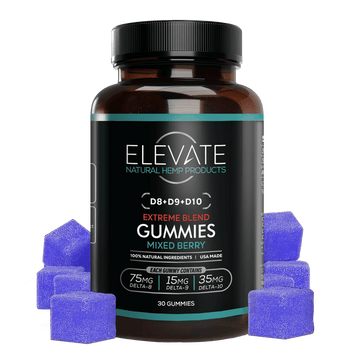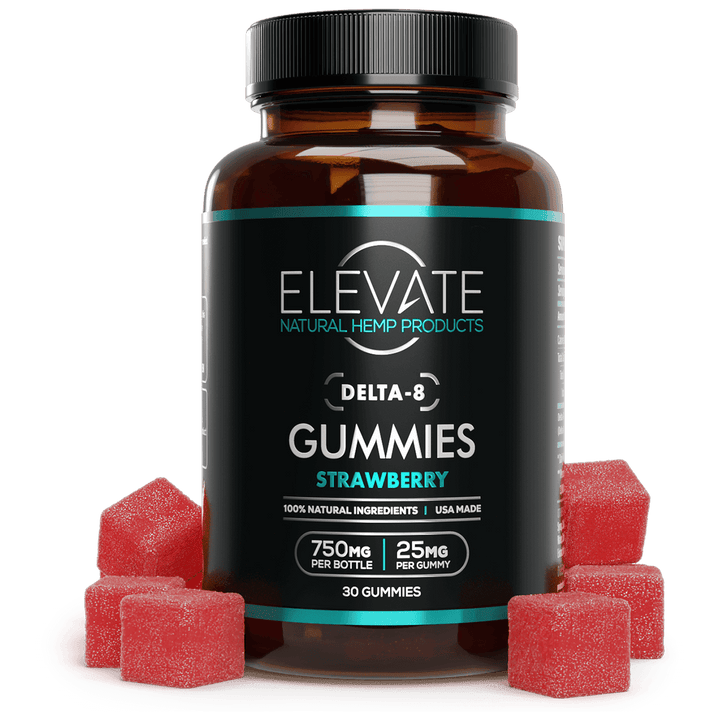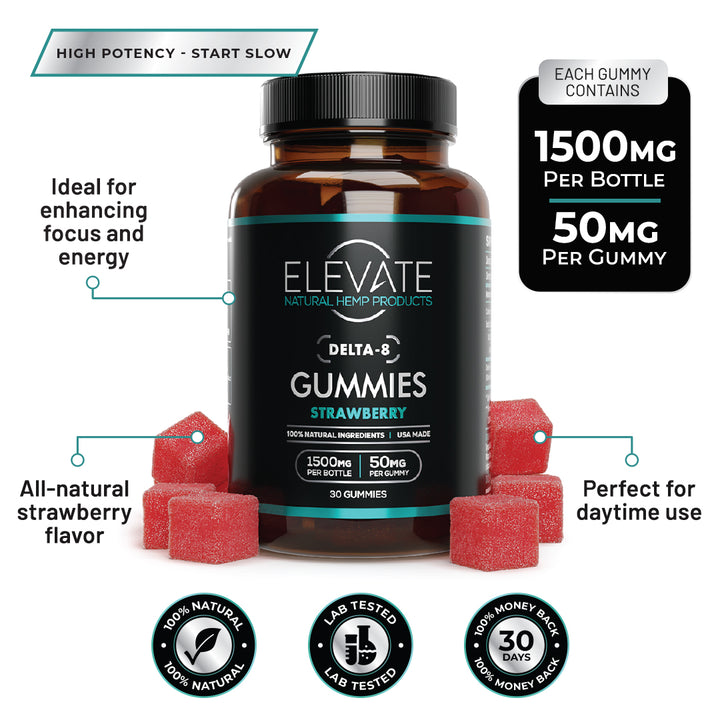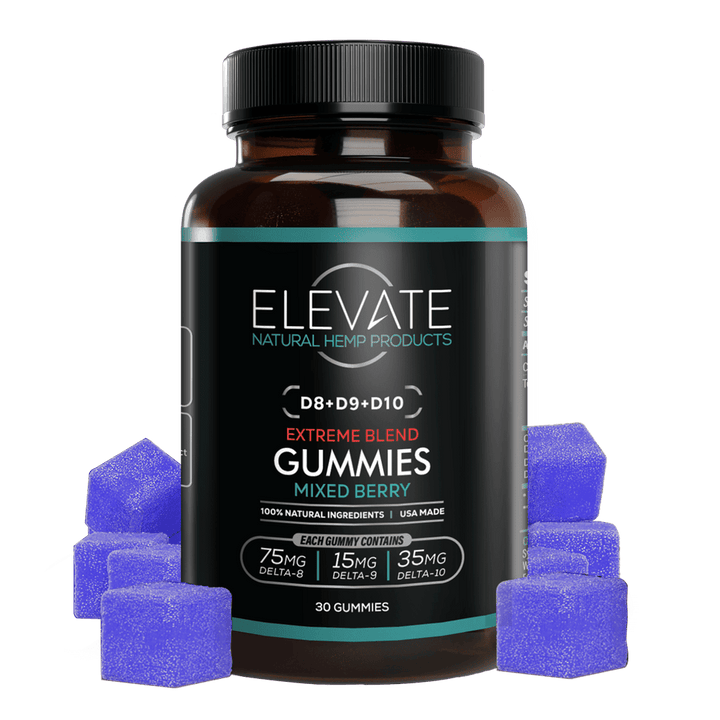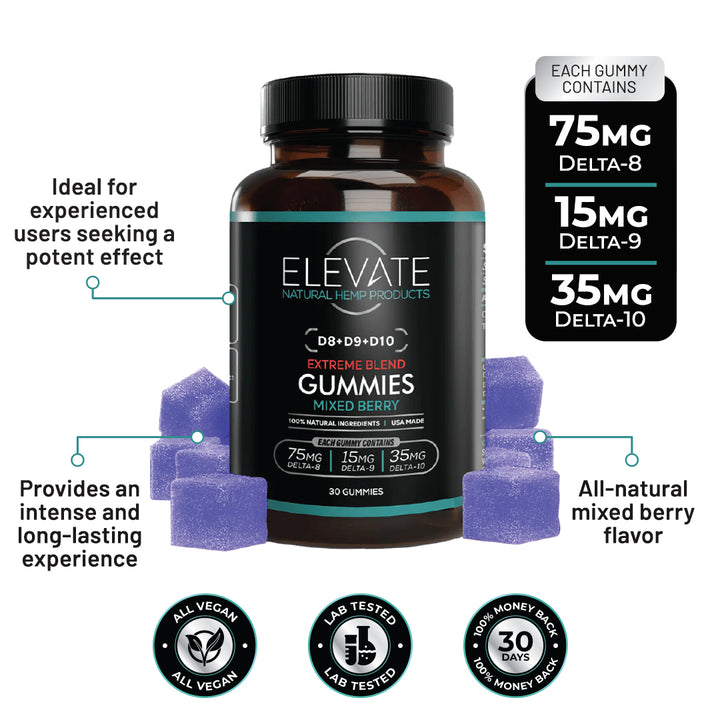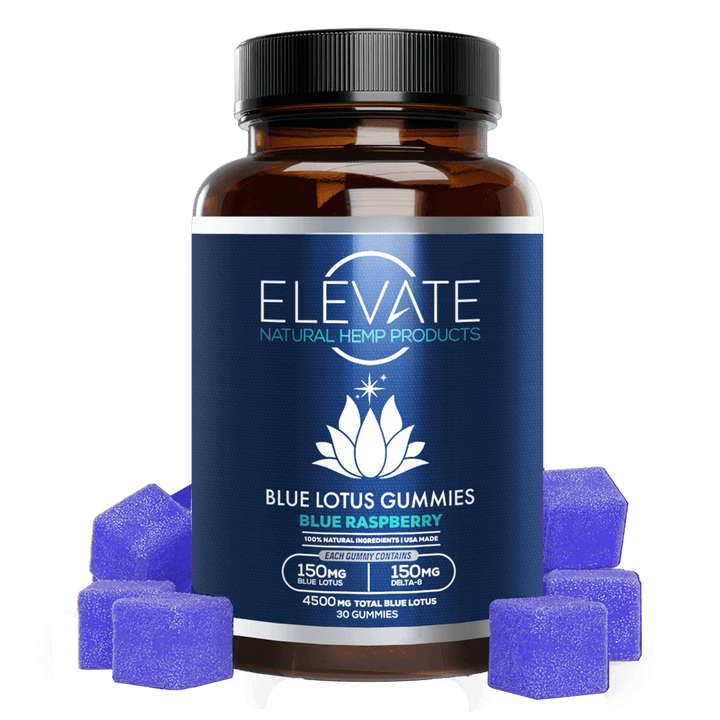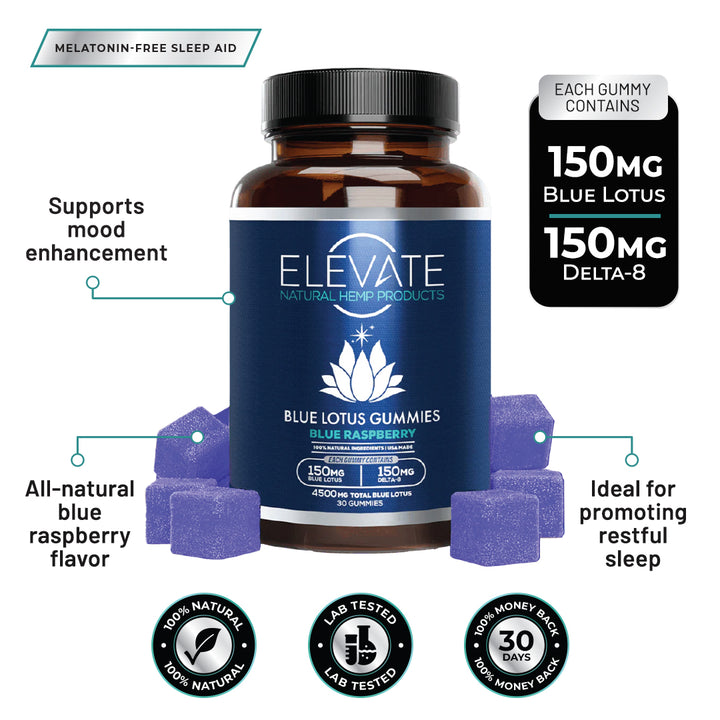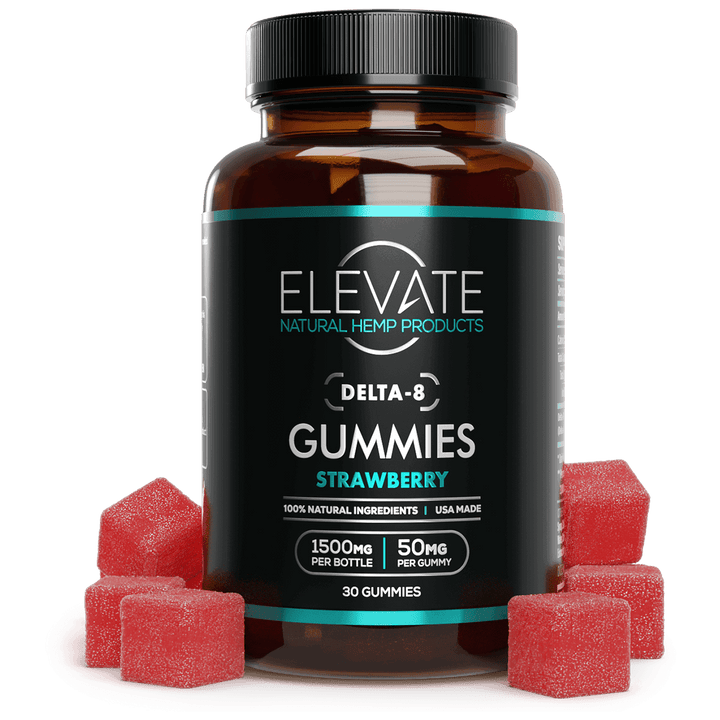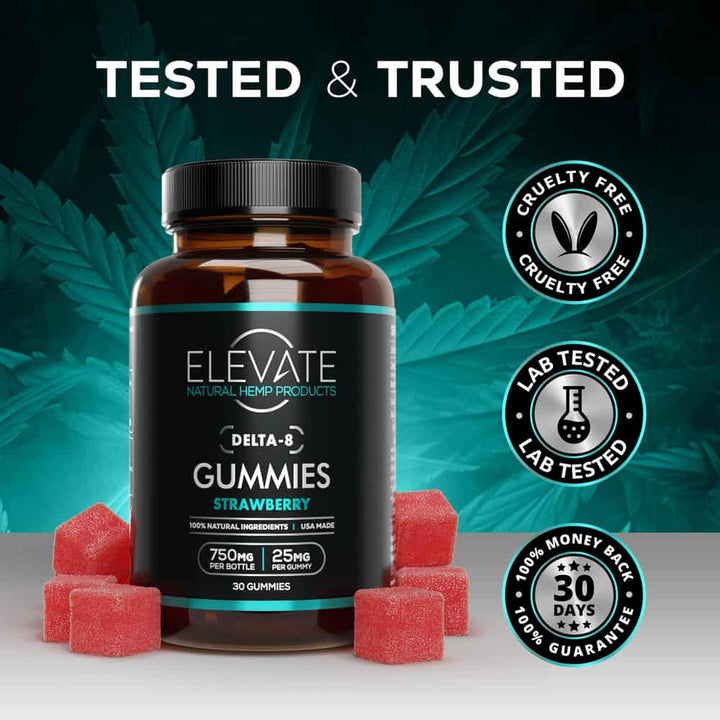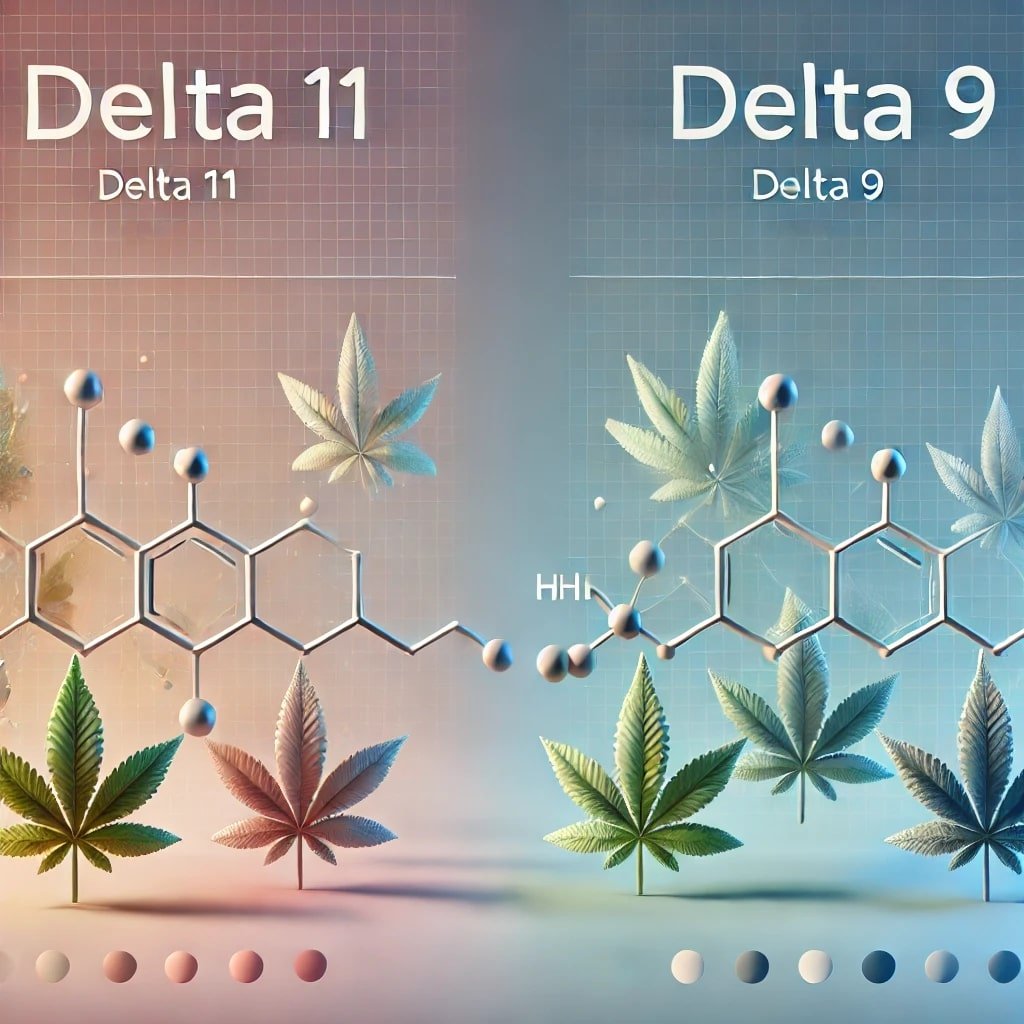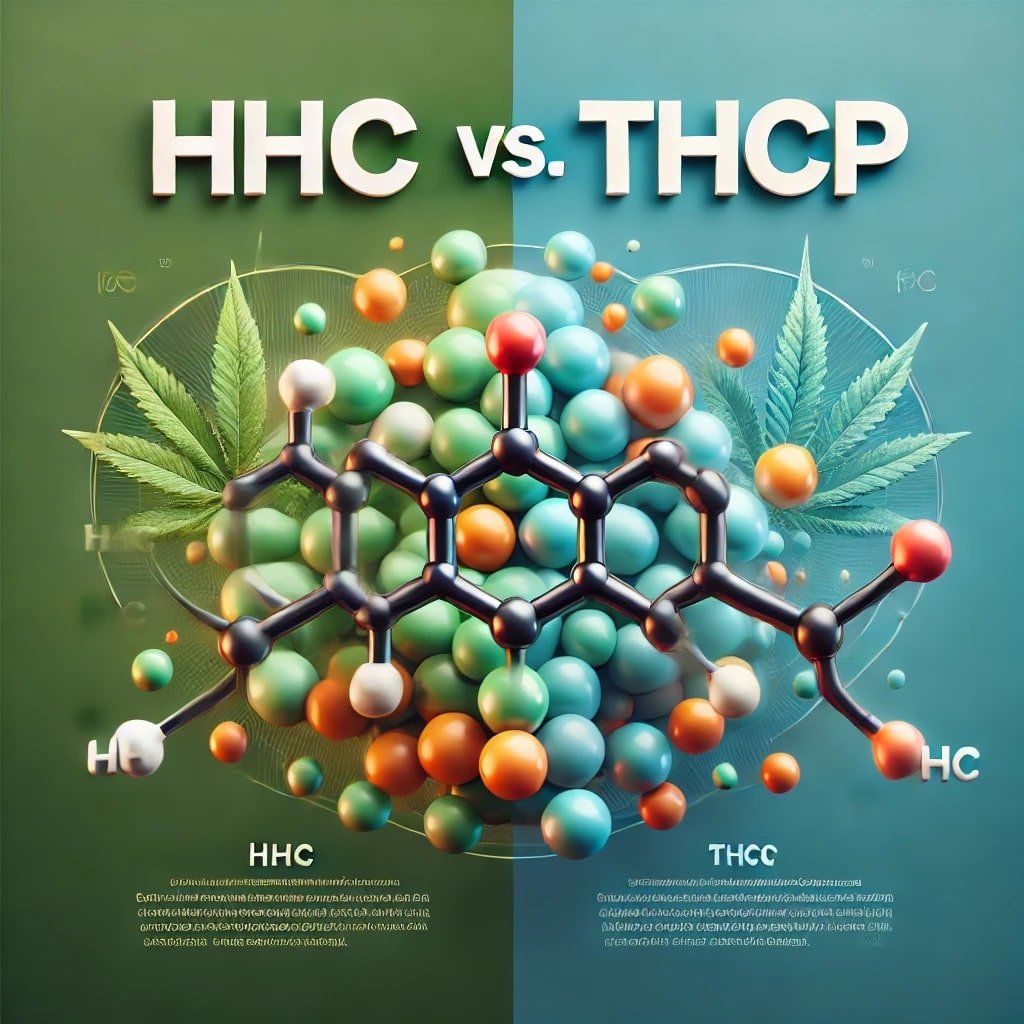Delta 8 is everywhere now, right? It's become a go-to for so many of us. But what happens when you find a half-used tincture or a forgotten gummy in your drawer? You're probably asking, "Does Delta 8 expire?" It's a super common question. Understanding Delta 8 product expiration is key, not just for getting the effects you want, but for avoiding a bad taste or weird texture. Let's get straight to the facts so you know exactly what to look for and how to store your products properly.
We'll sift through the elements that influence its durability and provide you with the essential know-how to store your Delta 8 products for maximum potency. From environmental factors to best storage practices, gain the insights you need to keep your Delta 8 as vibrant and effective as day one. Let’s unravel the mystery of cannabinoid preservation together, ensuring your Delta 8 experience remains top-notch every time.
What Exactly Is Delta 8?
Delta 8 THC is a cannabinoid found in the cannabis plant, much like its more well-known relative, Delta 9 THC. However, Delta 8 is distinguished by its slightly altered chemical structure, which results in a milder psychoactive effect. This makes it an appealing option for those seeking some of the benefits of THC—such as nausea relief, appetite stimulation, and anxiety reduction—without the intense high associated with Delta 9 THC.
Delta 8 is typically derived from hemp and is legally available in many areas where traditional cannabis products are restricted. It’s also noted for its smoother, more stable high, which has contributed to its rising popularity in the wellness and recreational markets.
Does Delta 8 Actually Expire?
Delta-8 THC products do have an expiration date, but their shelf life can be quite generous, depending on their formulation and quality. Each type of Delta-8 product might degrade differently based on the ingredients used and the form it takes.
Here's a rundown of how long you can expect different Delta-8 products to last:
Delta-8 THC Oil: Can be effective for up to 2 years when stored properly. Its longevity largely depends on keeping it away from direct sunlight and in a cool environment.
Delta-8 Capsules: These encapsulated forms benefit from an extended shelf life of up to 2 years thanks to the protective outer shell which shields the oil from air and light.
Delta-8 Gummies: Typically, gummies remain potent for about 1 year. The gelatin or pectin used in gummies helps preserve the Delta-8 THC content against breakdown from elements like heat and moisture.
Delta-8 Carts (Cartridges): These are best used within a year. The sealed cartridge helps protect the Delta-8 oil from oxidation and degradation from air exposure.
Delta-8 Flower: It's ideal to use this within a year. Keeping the flower in airtight containers and away from excessive humidity will help maintain its quality and effectiveness.
For all Delta-8 THC products, maintaining quality depends on minimal exposure to heat, light, and air. Products formulated with fewer and higher-quality ingredients generally demonstrate better stability and longer shelf life. Always check the integrity of the product through its appearance, smell, and consistency to gauge if it's still good to use.
Factors That Affect Shelf Life
So, what determines whether your Delta 8 product stays fresh or loses its punch? It’s not just one thing, but a combination of factors that influence its longevity. How you store your products and the quality of the ingredients play a huge role in preserving their potency and flavor. Understanding these key elements will help you get the most out of every purchase and ensure your experience is consistent from the first dose to the last. Let's look at the main culprits that can shorten your product's lifespan and what you can do about them.
Light, Air, and Temperature
Think of light, air, and heat as the primary adversaries of cannabinoid stability. Exposure to these elements can speed up the degradation process, breaking down the Delta 8 THC molecules and reducing the product's effectiveness. Direct sunlight is particularly damaging, as UV rays can quickly degrade cannabinoids. Similarly, oxygen in the air causes oxidation, which alters the chemical structure of THC. High temperatures also accelerate these chemical reactions. To maintain potency, it's crucial to store your products in a cool, dark, and airtight environment, like a drawer or cabinet away from any heat sources.
Product Type and Ingredients
The form of your Delta 8 product and its other ingredients significantly impact its shelf life. For instance, tinctures often last longer because the cannabinoids are suspended in a carrier oil that helps preserve them. Edibles, like our Delta 8 gummies, have a shelf life that depends on their other food ingredients, but they are generally formulated to remain stable for about a year. The overall quality is also a major factor. Products made with high-quality ingredients and fewer preservatives tend to have a more stable and predictable shelf life, ensuring a better and more consistent experience over time.
How Does Its Shelf Life Compare to Delta 9?
When it comes to staying power, Delta 8 and Delta 9 THC are remarkably similar. Both cannabinoids are susceptible to the same environmental enemies: air, heat, and light. This means that the same storage rules you'd apply to your Delta 9 products will work just as well for your Delta 8 stash. Neither cannabinoid is inherently more stable than the other in a significant way, so you can expect a comparable shelf life of one to two years for both, provided they are stored correctly. The key takeaway is that proper care is universal for preserving the potency of your favorite THC products.
Because they degrade under similar conditions, you don't need a separate strategy for each type of cannabinoid in your collection. Whether you're reaching for a product to help you focus or one from our THC for sleep line, keeping them in a cool, dark place away from direct sunlight and in an airtight container is the best practice. This consistency makes it simple to manage your wellness routine and ensures that whichever product you choose, it will deliver the effects you expect. Ultimately, the longevity of both Delta 8 and Delta 9 comes down to quality manufacturing and mindful storage.
Is Your Delta 8 Expired? Here's How to Check
Determining whether your Delta 8 product has expired is crucial to ensure you're using a safe and effective product. Here’s a detailed guide on how to check the integrity of your Delta 8 THC items:
Start with the Expiration Date
The first and most straightforward step is to check the product packaging for an expiration date. Most reputable manufacturers will include this information based on their stability testing.
Examine Its Color and Clarity
Look for any changes in the color or consistency of the product. Oils and tinctures might turn cloudy or murky, flowers may become overly dry and crumbly, and gummies might start to discolor or fuse together.
Give It a Sniff Test
Delta 8 products should maintain their characteristic smell. Any rancid, sour, or unusual odors can indicate spoilage, especially in oils and flower products.
Look for Signs of Mold or Dust
For products like cartridges and flowers, check for any visible mold or mildew, which indicates that the product is not only expired but also potentially harmful.
Perform a Cautious Taste Test
If the product looks and smells normal, a small taste test can help. Any off-flavors or unexpected bitterness can suggest degradation of the cannabinoids or other ingredients.
Think About How It Was Stored
Recall how the product has been stored. Exposure to heat, light, or air can accelerate degradation, reducing the shelf life well before the labeled expiration date.
Does It Still Feel Effective?
If you're using the product and notice it's not as effective as before, or the effects are markedly different, this might be a sign that the product has lost its potency due to age or improper storage.
Notice Any Changes in Texture
In edibles like gummies, look for any hardening or excessive softening, which can indicate that the product is past its prime.
What Happens If You Use Expired Delta 8?

Using expired Delta 8 THC products may not necessarily cause harm, but it can lead to a suboptimal experience in several ways. Here’s what might happen if you use Delta 8 products that have passed their prime:
It Loses Its Potency
The most common effect of an expired Delta 8 product is a decrease in potency. The cannabinoids degrade over time, especially when exposed to heat, light, or oxygen, making the product less effective.
The Effects Might Feel Different
Beyond just losing strength, the profile of the effects might change. For instance, degraded THC can convert to CBN (cannabinol), which has different effects, typically associated with greater sedation.
It Will Likely Taste and Smell Bad
As oils and other consumables degrade, they may develop off-flavors or unpleasant smells, which can make the consumption experience less enjoyable and more challenging to ingest.
You Might Experience Irritation
In some cases, consuming expired products, especially those involving compromised ingredients or contaminants like mold, could cause physical irritation. This might include throat irritation from vaping or smoking, digestive upset from edibles, or skin reactions from topicals.
There's a Risk of Contaminants
Products like flower and edibles that have expired are more susceptible to mold and bacterial growth, which could be harmful if consumed.
You'll Miss Out on the Benefits
For users relying on Delta 8 for specific therapeutic effects, such as pain relief, anxiety reduction, or appetite stimulation, an expired product may not deliver the expected relief, leading to disappointment and a lack of symptom management.
How to Keep Your Delta 8 Fresh for Longer
Extending the shelf life of your Delta 8 products ensures you maintain their potency, safety, and effectiveness for as long as possible. Here are some key factors on how to best preserve these products:
Find a Cool, Dark Spot
Heat and light are the primary enemies of cannabinoids like Delta 8 THC. They can accelerate the degradation process, reducing potency and altering the chemical structure of the active compounds. Store your products in a cool, dark cupboard or drawer away from direct sunlight and any heat sources.
Always Use an Airtight Container
Exposure to air can lead to oxidation, which degrades Delta 8 THC over time. Make sure all oils, flowers, and concentrates are stored in airtight containers. Vacuum-sealing can further extend the shelf life, particularly for flower products.
Keep Humidity in Check
For Delta 8 flower, maintaining a humidity level of around 62% can help preserve its quality. Humidity packs can be used in containers to maintain the ideal humidity, preventing the flower from becoming too dry or too moist, which could promote mold growth.
Know When to Refrigerate
While not necessary for all types of Delta 8 products, refrigeration can be beneficial for oils and edibles to help slow down the degradation process. Be sure to wrap products in an opaque bag or use an amber glass container to protect them from light even inside the fridge.
Tips for Storing Gummies
When it comes to your Delta 8 gummies, proper storage is simple but essential. They typically stay fresh and potent for about a year, as ingredients like pectin help preserve the THC. Always start by checking the expiration date on the package—it's your best guide for peak quality. To keep them from melting or losing their effectiveness, store them in a cool, dark place like a pantry or a cabinet, far from any windows or appliances that generate heat. The original airtight container they came in is usually the perfect home for them, as it's designed to protect against air and light exposure, keeping them just right for when you need them.
Storing Vape Cartridges Correctly
Your vape cartridges also need a little care to stay in top shape, and they're best used within a year. While the sealed design offers good protection against oxidation, how you store them matters. The most important tip is to keep them standing upright. This prevents any potential leaks and ensures the wick stays properly saturated with oil. It's also a good idea to cover the mouthpiece to keep dust and air out. Just like with other Delta 8 products, a cool, dark place such as a desk drawer or a dedicated case is the ideal spot to preserve the quality and flavor of your products.
Don't Open It Until You're Ready
Limit exposure to air by keeping products sealed until they are needed. Once opened, make sure to reseal them tightly after each use.
Practice Clean Handling
Use clean, dry utensils or dispensers when handling products like Delta 8 oil or edibles. Introducing moist and humid environments or contaminants can accelerate degradation or encourage microbial growth.
Make a Habit of Checking Dates
Keep track of when you purchased your products and their expected shelf lives. Regularly inspect older products for signs of spoilage or degradation and dispose of anything that seems off.
Follow the Manufacturer's Instructions
Always adhere to the storage recommendations provided by the product manufacturer. These guidelines are often tailored to the specific formulation of the product and can provide additional insights into extending its shelf life.
FAQs
Will Spoiled Delta 8 Make You Sick?
Using spoiled Delta 8 products is unlikely to cause serious illness, but it can lead to discomfort, such as nausea, headaches, or other minor physical irritations. The risk increases if the product has developed mold or bacteria, particularly in the case of edibles or flowers that have not been properly stored. Always inspect your products before use and discard any that show signs of spoilage.
How to Tell if Delta 8 Edibles Are Good
To determine if Delta 8 edibles are still good, check for:
Expiration Date: Always start by checking the packaging for an expiration date.
Appearance: Look for any discoloration or uneven texture.
Smell: Any off or unusual smells are a red flag.
Texture: Edibles that have hardened excessively or appear melted and then re-solidified may be past their prime.
How to Tell If Delta 8 Is Stale?
Delta 8 can become stale, especially when not stored correctly. Indicators of staleness include:
Loss of Potency: If the effects are noticeably diminished, the product may be stale.
Change in Smell or Taste: Any alteration in the aroma or flavor that doesn’t match the original product indicates it might be stale.
Physical Changes: Oils may become cloudy or viscous; flowers may dry out or crumble easily.
What Is the Shelf Life of Delta 8 THC?
The shelf life of Delta 8 THC typically ranges from one to two years, depending on the product form and storage conditions. Oils and tinctures may last up to two years, while edibles and flowers are best used within one year for optimal potency and safety.
Does Delta 8 Degrade Like Delta 9?
Yes, Delta 8 degrades in a manner similar to Delta 9 THC, particularly when exposed to air, light, or heat. Both cannabinoids can convert into CBN (cannabinol) over time, which has different effects and is less psychoactive. Proper storage can slow down this degradation process and maintain the potency and effectiveness of Delta 8 products.
### Pay Attention to PackagingThe easiest way to check if your product is past its prime is to look right on the label. Reputable manufacturers always include a "best by" or expiration date on their packaging. This date isn't just a random guess; it's determined through stability testing to estimate how long the product will maintain its quality and potency. Making a habit of checking the date before you purchase or use a product is the simplest and most reliable first step. If there's no date listed, that can be a red flag about the quality and transparency of the brand you're dealing with.
Important Considerations for Delta 8 Users
Knowing the shelf life of your Delta 8 is a great start, but being a responsible and informed user involves a bit more. Beyond freshness, there are other practical aspects to consider that ensure you have a safe and positive experience. This includes knowing how to properly dispose of products that are past their prime, understanding the legal landscape in your specific area, and being aware of how Delta 8 interacts with your body—especially when it comes to drug testing. These considerations are key to enjoying the benefits of Delta 8 while making smart, safe choices every step of the way.
Navigating these topics helps you use products like Delta 8 gummies and oils with confidence and peace of mind. Think of it as the user manual for your wellness routine. By staying informed about disposal, legality, and testing, you're not just consuming a product; you're managing your experience responsibly from start to finish. Let's cover what you need to know about each of these important areas so you can feel fully prepared and in control of your Delta 8 journey.
Disposing of Expired Products Safely
If you find a Delta 8 product that has expired, your first instinct might be to just toss it in the trash, but it's better to take a couple of extra steps. While using a spoiled product is unlikely to make you seriously ill, it can lead to unpleasant side effects like nausea or headaches. The bigger concern, especially with edibles or flower, is the potential for mold or bacteria growth, which you definitely don't want to ingest. Prioritizing your health means that if a product seems off in any way, the safest bet is to dispose of it properly.
To get rid of expired Delta 8 safely, avoid just throwing it directly into the bin where it could be found by pets, children, or others. A recommended method is to mix the product with something undesirable, like used coffee grounds or cat litter. Place this mixture into a sealed container or plastic bag to prevent leakage, and then dispose of it with your regular household garbage. This simple precaution ensures that the product is unappealing and inaccessible, providing a responsible end to its lifecycle.
Delta 8 and Drug Testing
This is a critical point for anyone whose job or activities require routine drug screenings. To be direct: yes, using Delta 8 THC can cause you to fail a drug test. The reason is that most standard drug tests are designed to detect the metabolites of THC, and they aren't sophisticated enough to distinguish between Delta 8 and the more well-known Delta 9 THC. Because their chemical structures are so similar, they produce nearly identical metabolites in your body, which will trigger a positive result for cannabis.
Even though Delta 8 may be legal in your state and is derived from hemp, that distinction won't matter to a standard drug screening panel. If you are subject to any form of drug testing, it is crucial to abstain from using Delta 8 products to avoid any potential negative consequences. Understanding how long these compounds can stay in your system is the next piece of the puzzle, helping you make an informed decision based on your personal circumstances.
How Long Does It Stay in Your System?
The detection window for Delta 8 varies significantly based on the type of test being administered and your personal usage patterns. According to information from addiction recovery specialists, the general timelines are as follows. In urine, Delta 8 can be detected for up to 30 days in frequent users, while occasional users might clear it in about a week. The window is much shorter for blood and saliva tests, which can typically detect THC for up to 48 hours after last use. Hair follicle tests have the longest memory, potentially showing use for up to 90 days, although this method is less common for standard screenings.
Factors That Influence Detection Time
The reason there isn't a single, straightforward answer for how long Delta 8 stays in your system is that several individual factors have a major impact. The most significant are your frequency of use and dosage—the more you consume, the longer it will take for the metabolites to clear. Your body's metabolism is another key player; a faster metabolism will process and eliminate substances more quickly. Additionally, since THC is fat-soluble, it's stored in fat cells, so your body fat percentage can also influence the detection window. Hydration and overall health can play a role as well.
Understanding the Legal Landscape
The legal status of Delta 8 THC exists in a bit of a gray area, which can be confusing. At the federal level, Delta 8 is typically derived from hemp containing less than 0.3% Delta 9 THC, which was made legal by the 2018 Farm Bill. This federal ruling is why you can find and purchase Delta 8 products in many states where recreational cannabis is otherwise illegal. It opened the door for a wide range of hemp-derived cannabinoids to become accessible to adults across the country for various wellness purposes, from sleep support to relaxation.
However, federal law isn't the final word. Many states have enacted their own legislation to specifically regulate, restrict, or outright ban the sale and possession of Delta 8 THC. These laws are constantly changing, with some states moving toward regulation while others are enforcing bans. Because the rules can vary so dramatically from one state to another—and even by county—it is absolutely essential to check your local laws before purchasing or consuming any Delta 8 products. A quick search on your state's official government website can provide the clarity you need to stay compliant.
Keeping Your Delta 8 at Its Best
To wrap up, understanding the shelf life of Delta 8 THC is crucial for anyone looking to maximize the efficacy and safety of their cannabinoid products. While Delta 8 does expire, its longevity can be maximized through diligent care. Regular checks for any changes in efficacy, along with stringent adherence to optimal storage practices, will help ensure that every Delta 8 experience is as rewarding as possible.
Ready to experience the finest in hemp wellness? Visit Elevate and discover the quality difference with our trusted hemp products. Shop with us today and ensure you're getting the purest, most effective products available. Don't settle for less—choose the best for your health!
Key Takeaways
- Store It Right to Keep It Potent: The best way to preserve your Delta 8 is to protect it from its biggest enemies: light, heat, and air. Keep your products in a cool, dark place like a drawer or cabinet and always in an airtight container to maintain their effectiveness.
- Know the Signs of an Expired Product: Go beyond the expiration date and trust your senses. If your product looks discolored, smells off, or has lost its potency, it's past its prime. When in doubt, it's always safest to dispose of it properly.
- Understand the Risks with Drug Tests and Local Laws: Using Delta 8 can lead to a failed drug test, as standard screenings can't tell it apart from Delta 9. Remember that state laws on Delta 8 can differ from federal guidelines, so always check your local regulations before you buy.

